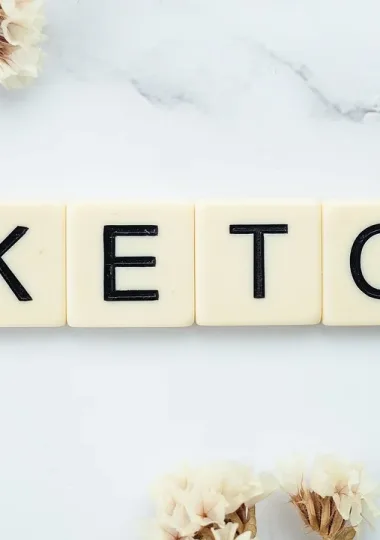“`html
Introduction
The ketogenic diet, commonly referred to as the keto diet, has surged in popularity due to its potential for weight loss and health benefits. A major component of this diet involves drastically reducing carbohydrate intake and replacing it with healthy fats, which puts the body into a metabolic state called ketosis. While this can be effective for many, it also means saying goodbye to sugar, a staple in many people’s diets. Fortunately, there are several keto-friendly sweeteners that allow you to indulge your sweet tooth without compromising your low-carb lifestyle. In this article, we’ll explore the top choices for keto-friendly sweeteners, their benefits, potential downsides, and how to incorporate them into your diet.
Understanding Keto-Friendly Sweeteners
Keto-friendly sweeteners are low in carbohydrates and do not spike blood sugar levels, making them suitable for those on a keto diet. These sweeteners enable individuals to enjoy sweetness without the adverse effects associated with sugar. The goal is to find a balance between maintaining ketosis and satisfying cravings for something sweet.
Top Keto-Friendly Sweeteners
Stevia
Stevia is a natural sweetener derived from the leaves of the Stevia rebaudiana plant. It is incredibly popular among those on low-carb diets due to its zero-calorie and zero-carbohydrate content. Stevia is much sweeter than sugar, meaning only a small amount is needed to achieve the desired sweetness.
**Benefits:**
– **Natural Origin:** Stevia is plant-based, making it an appealing choice for those looking for a natural sweetener.
– **Zero Glycemic Impact:** It does not cause a spike in blood sugar levels, making it an excellent choice for people with diabetes or those monitoring their blood sugar.
– **Antioxidant Properties:** Stevia contains compounds with antioxidant properties, which can contribute to overall health.
**Considerations:**
– **Bitter Aftertaste:** Some people notice a slightly bitter aftertaste when using stevia, which can be off-putting.
– **Purity Variations:** It’s important to check the purity of the stevia product, as some brands mix it with other sweeteners or fillers.
Erythritol
Erythritol is a sugar alcohol naturally found in certain fruits and fermented foods. It is about 70% as sweet as sugar and has a similar taste and texture, making it a popular sugar substitute in baking and cooking.
**Benefits:**
– **Low in Calories:** Erythritol contains only 0.24 calories per gram, making it nearly calorie-free.
– **Minimal Digestive Discomfort:** Compared to other sugar alcohols, erythritol is less likely to cause digestive issues because it is absorbed into the bloodstream before reaching the colon.
**Considerations:**
– **Cooling Effect:** Some people experience a cooling sensation in their mouth when consuming erythritol, which may not be desirable in certain recipes.
– **Not as Sweet:** Since erythritol is less sweet than sugar, more may be needed to achieve the same level of sweetness.
Monk Fruit Sweetener
Monk fruit sweetener is derived from the monk fruit, a small melon native to Southeast Asia. It contains zero calories and carbohydrates, making it an excellent sugar replacement for those on a keto diet.
**Benefits:**
– **Natural Sweetener:** Monk fruit is 100-250 times sweeter than sugar, and it’s completely natural, with no known side effects.
– **No Glycemic Impact:** Like stevia, monk fruit sweetener does not raise blood sugar levels.
**Considerations:**
– **Price and Availability:** Monk fruit sweeteners can be more expensive and harder to find compared to other sugar substitutes.
– **Blends with Other Sweeteners:** Some products labeled as monk fruit sweeteners may contain other sweeteners, so it’s crucial to read labels carefully.
Allulose
Allulose is a rare sugar found in small quantities in certain fruits. It has gained popularity as a sugar substitute due to its similar taste and texture to sugar, with about 70% of the sweetness.
**Benefits:**
– **Low in Calories:** Allulose contains about 0.2 calories per gram, making it an attractive option for those watching their calorie intake.
– **No Glycemic Response:** It does not spike blood sugar or insulin levels, aligning well with the goals of a keto diet.
**Considerations:**
– **Digestive Issues:** Consuming large amounts of allulose may cause digestive discomfort, such as bloating or diarrhea.
– **Availability:** Allulose is still relatively new and may not be as widely available as other sweeteners.
Xylitol
Xylitol is another sugar alcohol commonly used as a sugar substitute. It is found naturally in many fruits and vegetables and has a sweetness similar to sugar.
**Benefits:**
– **Dental Health:** Xylitol is often used in dental products because it can help prevent tooth decay.
– **Low Glycemic Index:** It has a low glycemic index, meaning it has minimal impact on blood sugar levels.
**Considerations:**
– **Calorie Content:** Xylitol contains more calories than other sugar alcohols, with about 2.4 calories per gram.
– **Toxicity to Pets:** Xylitol is highly toxic to dogs, so it should be used with caution in households with pets.
Incorporating Keto-Friendly Sweeteners into Your Diet
When using keto-friendly sweeteners, it’s essential to understand their unique properties and how they interact with different recipes. Here are some tips for incorporating these sweeteners into your keto diet:
1. **Experiment with Blends:** Mixing different sweeteners can balance out their individual aftertastes and create a more sugar-like flavor.
2. **Adjust Recipes:** Since many keto-friendly sweeteners are sweeter than sugar, you’ll need to adjust the quantities in your recipes. Start with small amounts and adjust to taste.
3. **Be Mindful of Cooking and Baking Properties:** Some sweeteners, like erythritol, can crystallize when cooled, which may affect the texture of baked goods. Experiment to find the right sweetener for each recipe.
4. **Read Labels:** Always check the ingredients list to ensure the sweetener doesn’t contain hidden sugars or carbs.
Conclusion
Choosing the right sweetener on a ketogenic diet can significantly impact your success and enjoyment of the diet. With options like stevia, erythritol, monk fruit, allulose, and xylitol, you can satisfy your sweet cravings without derailing your low-carb lifestyle. Each sweetener has its own set of benefits and considerations, so it’s important to find the one that best fits your taste preferences and dietary needs. By incorporating these keto-friendly sweeteners into your diet wisely, you can enjoy the benefits of the keto diet without sacrificing the joy of sweetness.
“`









Add comment